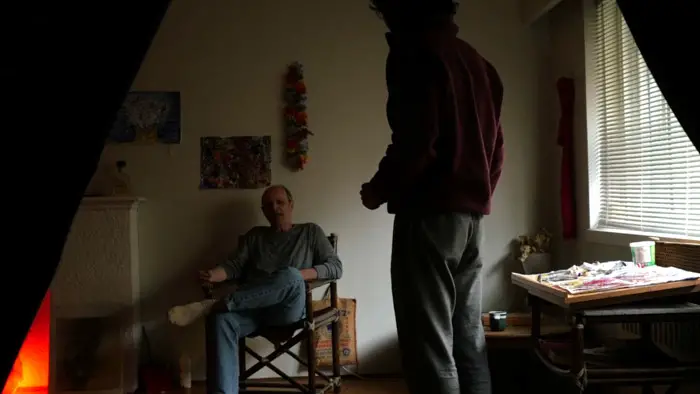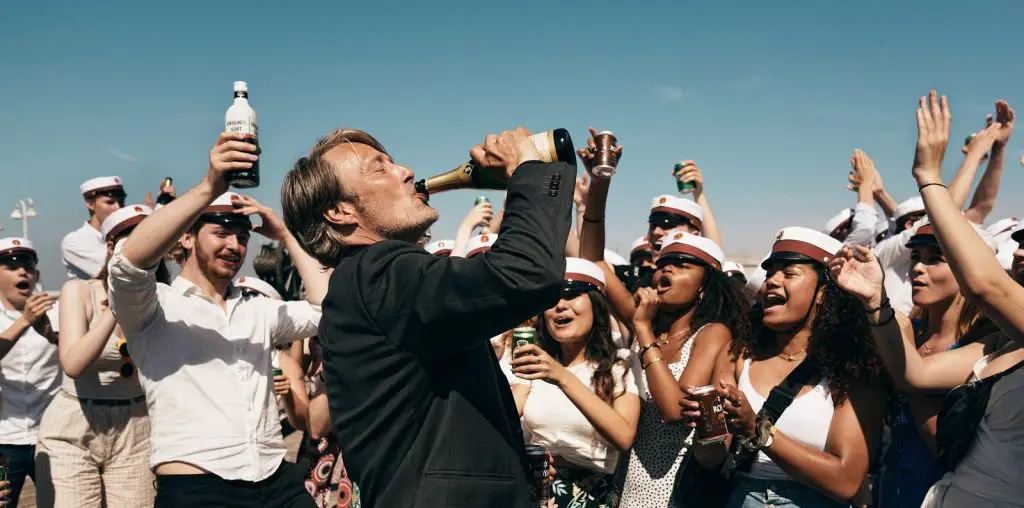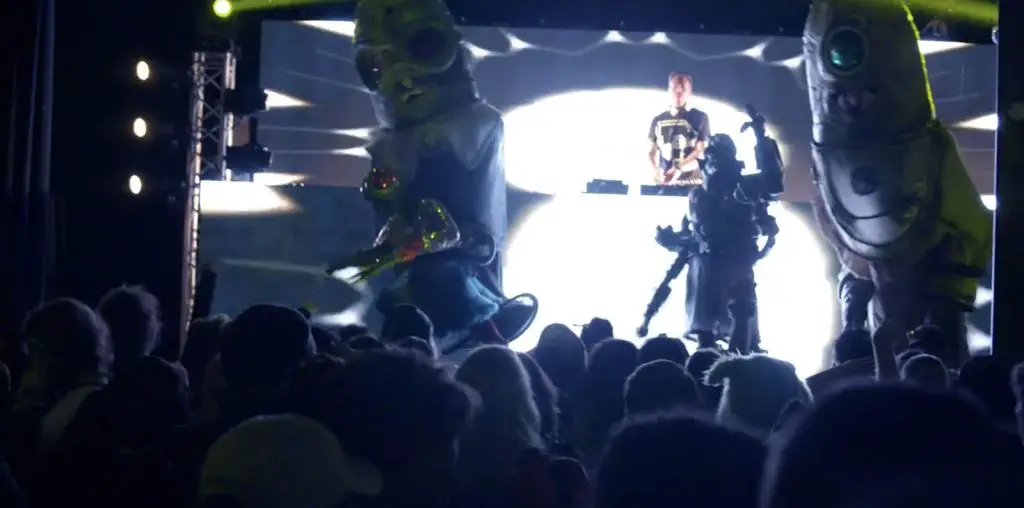
At just over one hour in, the main character of Drug Train is having a conversation with a friend. The friend says that just because the ego seems to nap while on drugs, it does reemerge because one needs to have a personality. The main character, who up to this point has smeared paint on walls, taken copious amounts of drugs, talked to friends in various locales, and took more drugs, replies that one does not need to have a personality. Unfortunately, this sentiment characterizes the entire film. It’s a crying shame director Bijan Karim, and co-writer Alden Doyle took this to heart, crafting a movie with no style or personality, populated by blank slates of talking wood, who, too, are devoid of personality.
As stated, this Canadian feature is about the main character and his friends taking drugs, talking, and taking more drugs. The locations they fritter away their time in include an aviary, a park, and various houses. That is all there is to the story. Nothing happens to the characters as the camera observes them, listening to their inane ramblings. But, that is not inherently a bad thing, so long as the conversations are engaging.
To that end, let’s examine Kevin Smith’s Clerks. The filmmaker is proud that his 1990s indie favorite is a movie “about nothing.” Here’s a brief synopsis for those who haven’t seen it: Dante gets called into work at the convenience store that employs him on his day off. His buddy Randal, who works at the video rental store next door, comes over, and they talk. Later on, an old man dies in the store’s bathroom, and Dante’s ex accidentally has sex with the corpse. That is the extent of any story beats present.

“…about the main character and his friends taking drugs, talking, and taking more drugs.”
Now, don’t take that as an indictment of Clerks. It works, partially because of its punchy dialogue and partially because of the two lead actors. Richard Linklater’s Slacker is also a film where nothing happens, but the jovial atmosphere and conversations engage the audience, not to mention its unique style. These two examples of movies where nothing happens are by no means definitive or the only good ones, but they do illustrate my point beautifully: such narratives can work and resonate with audiences and critics alike (Clerks made quite the profit at the box office and Slacker is a part of the Criterion Collection). But, that isn’t the case with Drug Train.
In Clerks, a customer asks Randal’s opinion on two movies, and he replies that he “doesn’t watch movies,” adding later on that he “finds it best to stay out of other people’s affairs.” The scene is memorably funny. In Drug Train, there’s nothing similar. Near the end of the film, a friend of the main character asks if he’s okay. The lead says that he hates that question, as he does not know what that “bunch of letters” means, “man.” For one, this person has been chasing feeling good the entire movie, so his response is confusing. Secondly, due to the entirely improvisational nature of the production, the characters are neither well-defined nor fleshed out, so it appears he is just a jerk. And yes, the title is Drug Train, so an endless cacophony of dialogue only those high as a kite could understand is not that surprising. What is, though, is the lack of characterizations, interesting conversations, or overall point.
This asinine dialogue makes up the entirety of Drug Train. It is all so uninteresting, and since that is all there is, the film fails dramatically. The director gave the actors “as much freedom as they would [have] in a documentary” to shape the story. But, being a “completely unobtrusive director” has backfired spectacularly. Even in other films where plot specifics are less important than the reaction of the actors, the filmmakers still ensure that each scene had a purpose and that the actors fulfilled it (i.e., The Blair Witch Project was primarily improvised, with the actors knowing the bare-bones story, so that their reactions would be genuine).
So, what is gleaned from a scene where the main character is talking to an older man (his drug dealer, maybe?), and the man discusses how when he takes drugs, the consciousness of the plant it’s derived from takes over? What does that tell you about the character or his motivations? Absolutely nothing, as this idea and the man, have no bearing on the story aside from allowing the lead to take more drugs. Compare that to the aforementioned Clerks scene, wherein the exact kind of humor Randal prefers, his slacker tendencies, and his attitude towards people all come shining through in one brief dialogue exchange.

"…these characters end in the same spot they began."


